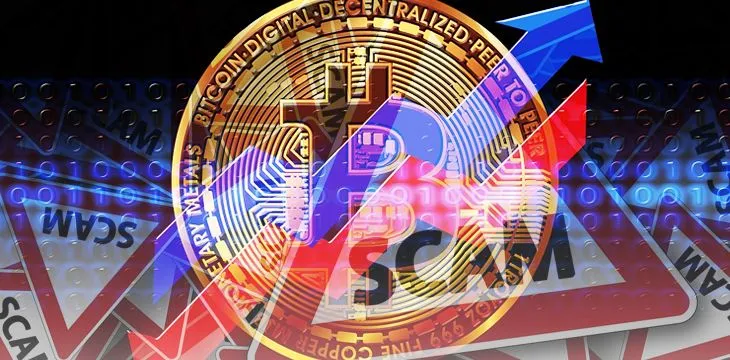|
Getting your Trinity Audio player ready...
|
A report from the Australian Competition and Consumer Commission (ACCC) has revealed that Australians lost over A$21 million (about US$14.5 million) to digital currency-related investment scams in 2019.
The ACCC’s findings are in line with what other government agencies around the world have been reporting this year—there has been an increase in digital currency-related crime.
“Scammers are shifting to more modern payment methods, which are often harder to trace than traditional ones. The anonymity of unregulated cryptocurrencies and other real-time payment channels impedes the ability to recover funds or identify scammers,” the ACCC stated.
Some digital asset payments have a higher degree of anonymity than others, which makes certain coins and tokens attractive vehicles to facilitate crime. A total of 1,810 digital currency-related scams were reported to the ACCC in 2019—and BTC was the most popular digital currency used in these scams, accounting for A$19.4 million of the A$21 million lost.
The amount of money Australians lost to digital currency scams in 2019 is roughly four times the amount lost in 2018, according to the regulator.
Digital currency scams via messaging platforms
A majority of these scams took place through communication platforms like Discord and Telegram, and targeted individuals who already had an interest in digital asset trading. The report noted that the majority of the reports filed were made by Australians ages 25-34.
“Scammers tend to target people who are already interested in investing and cryptocurrencies,” the report stated. “As with other investment scams, victims are offered an opportunity to make high returns quickly. They trade in cryptocurrency and often communicate with the scammers on modern platforms such as Discord and Telegram. Victims will find the trading platform suddenly shuts down, the scammers can’t be contacted and their money disappears.”
In essence, scammers obtain digital currency payments from unsuspecting victims and then either shut down the platform that they use to facilitate the scam or disappear leaving no way to be contacted shortly after they have received the victims’ funds.
Do your own research
With digital currency-related scams on the rise, it is never a bad time to remind our readers to always do your own research. If an investment opportunity sounds too good to be true, then it probably is and is most likely a scam. Be wary of individuals and platforms that allow you to earn high returns with no risk associated.

 07-12-2025
07-12-2025 





